#portuguese mythology
Explore tagged Tumblr posts
Photo

The Enchanted Moura by Bruno Albuquerque
9 notes
·
View notes
Text
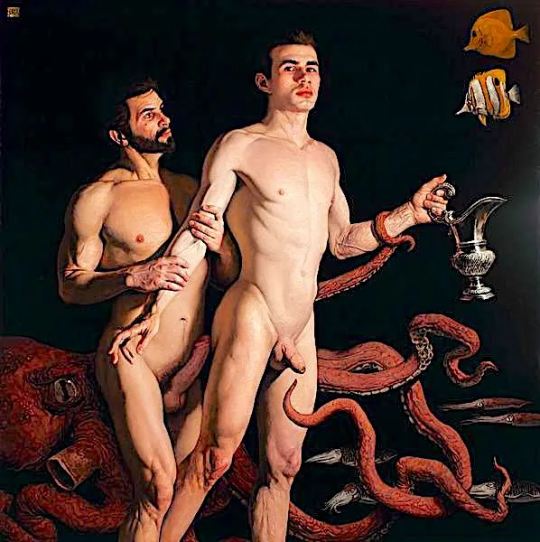
Carlos Barahona Possollo (b. 1967), Portuguese artist: “Pelops and Poseidon”, 2012, Oil and Gold Leaf on Wood, 120 x 120 cm, Private Collection
Source: ultrawolvesunderthefullmoon.blog
461 notes
·
View notes
Text

Adamastor





#hetalia#aph portugal#hws portugal#rosas headcanons#traditional work#traditional illustration#traditionalart#traditional drawing#traditional art#portugal hetalia#hetalia portugal#portuguese myths#mythical creatures#mythology portuguese#axispowershetalia#hetalia axis powers#axis powers ヘタリア#aph
36 notes
·
View notes
Text

(Found this HERE)
The Next Generation Knights of the Round Table, led by "Sagramore Constantino", from Memorial das Proezas da Segunda Tavola Redonda, by Jorge Ferreira De Vasconcelos.
Featuring:
Doristan, son of Gawain
Fidonflores, son of Hector de Maris
Brisam and Bronsidel, twin sons of "Galeazo"(?)
Florismarte and Andronia, son and daughter of Lancelot and Guinevere
Seleucia, daughter of Arthur and Lisanor
Lucidardos, son of Tristan and Iseult
Munsolinos, son of Palamedes
Speculation as to whether some of them could be conflated with other established characters (E. I. Lucidardos with Ysaye le Triste) will be left to the imagination.
#portuguese arthuriana#memorial das proezas da segunda tavola redonda#arthuriana#arthurian legends#arthurian literature#arthurian mythology#children of the round table#knights of the round table#sir lancelot#sir tristan#queen guinevere#king arthur#sir palamedes#tristan and iseult#hector de maris#sir gawain#lisanor#arthurian legend
16 notes
·
View notes
Text
when it’s 5am and the romance branch indo-european language family does it’s thing


#saint seiya#capricorn shura#cancer deathmask#taurus aldebaran#not sure if others have a split second confusion when they understand another language they don’t know. like I read something in Portuguese#and was surprised by how much I understood then remembered I know Spanish. sometimes I have a ��hold up I understood that’ moment#when I hear Italian. thinking of drawing the goldies as kid doing a sort of show and tell but they share stuff about their culture#not sure what it’d do for milo tho since there’s 4 greeks. I feel like saga would rant about mythology and/or history#(he seems like a lil nerd) Aioros and aioria could talk about the meaning of their names#maybe it’s cause I’m hungry rn but them sharing traditional/favorite meals seems nice :)
35 notes
·
View notes
Text
The way to tell when one of my hyperfixations has gotten serious is when i've started learning a language from it <-(guy who has started trying to learn greek)
#rainy day rambles#i blame epic the musical for this because now im reading straight up odyssey and illiad fanfiction#i really thought i skipped the greek mythology phase bc i never read percy jackson#but nope it just came a little later than expected#first portuguese now this#i wouldn't be surprised if i started trying to learn japanese again so i can read the wha manga as it comes out#i have a feeling this isn't how/why most people learn languages#but hey if it works it works
7 notes
·
View notes
Note
hi! i was wondering which books were on your "to scan" list and which books you're looking for but don't own a copy of. if that's okay to ask.
Hello!
This is a great question, especially because I’m so fortunate to have a lot of people here on tumblr as well as discord who work to help me fill out these book lists!
There’s a few books in my collection I haven't found a PDF for.
Retellings
The Story of Sir Galahad by Mary Blackwell Sterling (1908) [Camelot Project]
The Doom of Camelot anthology edited by James Lowder (2000)
Legends of the Pendragon anthology edited by James Lowder (2002)
There may be more to add to the list though! If anyone has a book in mind that is:
In the public domain
Out of print
Written by a deceased author
I’d be happy to work on adding those! Whether that be tracking down an existing PDF or buying a copy to scan.
Medieval Literature
English translations:
Three Arthurian Romances translated by Arthur Gilbert Ross (Caradoc, The Knight with the Sword, The Perilous Graveyard)
I ordered this and then it never arrived. :^/ I'll try again, but my goal is to have the full text scanned and searchable rather than the individual parts such as float around currently.
Roman van Walewein
Ferguut
Lancelot Compilation
English translations of this Dutch trilogy is locked up in university libraries. I know they are, because several people have told me so. Academic rigmarole is preventing anyone from accessing them yet. But! I have physical copies of all three books myself edited by David F. Johnson & Geert H.M. Claassens. They’re huge, Lancelot is pushing 800 pages long. I’d like to exhaust our options before I spend hours scanning these, particularly if they already exist in full searchable PDF format. If it comes to it, I'll scan them. Cover to cover.
Untranslated:
Le Petit Bruit (French)
Le Román de Tristan le roman de Palamede (French)
Escanor by Girart d'Amiens (French)
Les propheties de Merlin (French) [some people are working on this already]
Cantari Arthuriens (Italian) [needs to be made into a PDF & then translated, already have translated Pulzella Gaia]
ll Ciclo di Guiron le Courtois Vol I-Vol VI (Italian) [Can't find Vol VII.]
Roman de Roi Artus by Rustichello da Pisa (Italian) [Does a PDF exist?]
Memorial das Proezas da Segunda Tavola Redonda by Jorge Ferreira de Vasconcellos (Portuguese)
Tristán de Leonís y el rey don Tristán el joven, su hijo (Spanish)
That's everything at the moment. Having this typed out will be helpful so we can keep track of what's what. Let me know if there's anything I missed!
#arthurian preservation project#arthuriana#arthurian mythology#arthurian literature#arthurian legend#french#italian#portuguese#spanish#ask#anonymous
12 notes
·
View notes
Text
Cradle Of Filth - The Ghost In The Fog
#Cradle of Filth#Midian#The Ghost In The Fog#Release date: October 30th 2000#Full-length#Amor e Morte is Portuguese for Love and Death.#Genre: Symphonic Black Metal#Genre: Symphonic Black Metal era#Lyrical themes: Occultism (early); Dark romance Mythology Horror tales#UK
26 notes
·
View notes
Text
Deep dives into folklore: Portuguese folklore
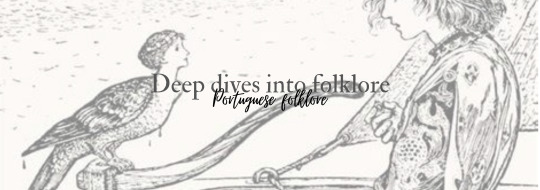
Portuguese folklore, a mesmerizing mosaic of myths and legends, serves as a profound testament to the cultural heritage of the nation. Woven over centuries, this intricate tapestry reflects the dynamic interplay of historical influences, blending the legacies of Phoenicians, Romans, Moors, Celts, and Christians. Rooted in a diverse historical landscape, Portuguese folklore encapsulates the essence of the country's identity, encapsulating the collective imagination of its people. As we embark on a deep dive into this mystical realm, we unveil the stories, characters, and cultural significance that have endured through the ages, illuminating the captivating spirit of Portugal's folklore.
Portuguese folklore has deep roots in the country's history, blending influences from various civilizations that have shaped the region over millennia. Phoenician, Roman, Moorish, and Celtic influences, among others, have contributed to the diverse range of myths and legends that make up Portugal's folklore.
One of the earliest influences on Portuguese folklore is the Roman presence in Lusitania. The Romans introduced their own deities and myths, blending with the existing indigenous beliefs. As Christianity took root in the region, a symbiotic relationship developed between pagan and Christian elements, resulting in a unique blend of folklore that reflects Portugal's cultural identity.
The Lusitanian Mythical Heritage:
Before Roman rule, the Lusitanians, an ancient Celtic people, had their own pantheon of deities and mythical beings. The god Bandua, associated with war and protection, and the goddess Ataegina, linked to fertility, are examples of Lusitanian figures that persisted in local folklore.
The Moura Encantada:
The Moura Encantada, or the Enchanted Moorish Maiden, is a prominent figure in Portuguese folklore. These mythical beings are often beautiful women with magical powers, dwelling in hidden places or trapped in enchantments. Stories of love, loss, and magical intervention surround the Moura Encantada, emphasizing themes of fate and destiny.
The Lobo Ibérico (Iberian Wolf):
Wolves hold a significant place in Portuguese folklore, symbolizing both danger and wisdom. The Lobo Ibérico is a recurring motif, representing the untamed wilderness and the struggle for survival. Folk tales often feature wolves as shape-shifters or mystical guardians, embodying the complex relationship between humans and nature.
The Barco da Roda (Wheelbarrow Boat):
Coastal regions of Portugal have tales of the Barco da Roda, a phantom boat that appears during storms. Believed to be a harbinger of doom, this spectral vessel is associated with the souls of the deceased. The folklore surrounding the Barco da Roda reflects the maritime culture and the inherent connection between the Portuguese people and the sea.
Portuguese folklore serves as a mirror reflecting the collective consciousness of the nation. It embodies the struggles, triumphs, and enduring spirit of the Portuguese people. The fusion of pagan and Christian elements in folklore illustrates the adaptive nature of Portugal's cultural identity.
Festivals and celebrations often incorporate folklore, with traditional dances, music, and costumes bringing mythical characters to life. The Feast of São João, celebrated across Portugal, features rituals and customs that trace their roots to ancient solstice celebrations, merging pre-Christian traditions with Christian elements.
In conclusion, Portuguese folklore is a captivating journey through the cultural tapestry of a nation. Its origins in diverse historical influences, the presence of mythical figures like the Moura Encantada and the Lobo Ibérico, and its cultural significance in festivals and celebrations all contribute to the richness of Portugal's folklore. Through the ages, these stories have been passed down, evolving and adapting while preserving the essence of Portugal's enchanting heritage.
Taglist (reply or reblog to be added): @axl-ul @crow-flower @thoughts-fromthevoid @alderwoodbooks @harleyacoincidence @tuberosumtater @sonic-spade @theonlygardenia @holymzogynybatman @nulliel-tres @w0rkah0licz @sylvanthorn @tigertaurus22 @profiterole-reads @mathias-musings @1899adgg1997tbmd @grimmparanormalinvestigations
#writeblr#writers of tumblr#writing#bookish#booklr#fantasy books#creative writing#book blog#ya fantasy books#ya books#deep dives into folklore#deep dives#folklore#mythology#portuguese#portuguese folklore
36 notes
·
View notes
Photo

5 notes
·
View notes
Text
Okay so in this post I made a few months ago on druidry resources, I mention Alexei Kondratiev’s Lorekeeper Course as a good place for getting started on learning celtic reconstuctionism.
However. The site has been messed up (again) for quite a while, so you cant access any of the materials right now. This has happened several times, and after the last time I ended up downloading all the pages so I could still read them.
And then because Im a little freak sometimes I formatted all of them into pdf and epub formats.
So if anyone wants access to those, here they are on internet archive.
Update:
I forgot to add, while I was searching to see if anyone had posted the course anywhere else, I did happen to find that someone translated the entire thing to Portuguese.
And someone also put that version on scribd as a pdf. So uh, thats pretty neat.
#alexei kondratievs lorekeepers course 1.0#the lorekeepers course#druidry#paganism#celtic paganism#witchblr#witchcraft#mythology and folklore#portuguese
18 notes
·
View notes
Text
ALGUÉM VOLTOU PRA CONTAR?

Ao que parece, o submundo dos mortos, é visto pelos médiuns , conforme suas convicções.
Medium da umbanda e do candomblé:
Difícil eles entrar, se entrar, há todo um ritual antes e depois de sair do cemitério.
Medo, respeito, várias entidades, espíritos de todo tipo.
Medium Kardecista: uma alma aqui, ali, lugar de paz, talvez até veja um espírito em conflito com sua condição, mas nada que o faça temer ou sair correndo daquele lugar

Então o que verás um ateu após a morte?
Nada. Ele em nada crer, e se ver algo, não acreditará.
Bem, dependendo do ateu…
Caronte o ajude na travessia.
Anúbis o convoque para atravessar o vale das sombras até ao paraíso…
Tem muito ateu que acha que ateísmo é zombar das religiões judaico cristãs, religião que ele respeita, mesmo como pura mitologia , são as pagãs.
Melhor que o sono eterno da sua carne putrefando.

HAS ANYONE COME BACK TO TELL US?
Apparently, the underworld of the dead is seen by mediums, according to their beliefs.
Umbanda and Candomblé mediums:
It is difficult for them to enter, and if they do, there is a whole ritual before and after leaving the cemetery.
Fear, respect, various entities, spirits of all kinds.
Kardecist mediums: a soul here, there, a place of peace, perhaps they even see a spirit in conflict with their condition, but nothing that makes them fear or run away from that place.
So what will an atheist see after death?
Nothing. They will believe in nothing, and if they see something, they will not believe it.
Well, depending on the atheist…
May Charon help them cross over.
Anubis summons him to cross the valley of shadows to paradise…
There are many atheists who think that atheism is mocking the Judeo-Christian religions, a religion that he respects, even as pure mythology, is the pagan ones.
Better than the eternal sleep of his putrefying flesh.

#cemetery#mitología#mythology and folklore#medium#cronica#texto#english#portuguese#brasil#brazil#alem túmulo#submundo#Anúbis
0 notes
Text
another highlight is that I laughed out loud when odysseus compared circe not having ever used another loom other than the good one she owned to being "like having aquiles to do your house chores!"
#(rough translation bc im reading it in portuguese#still funny#circe#miss them💔#im not really into mythology btw#the only other book ive read abt it was the song of Achilles#but madeline miller is converting me
1 note
·
View note
Text
Portuguese Man O’ War Poseidon where his hair is spindly blue and pink, and he’s got a shoulder piece that looks like the body.
i see your octopus Poseidon and raise you:
siphonophore Poseidon
#epic the musical#poseidon#siphonophore#greek mythology#jorge rivera herrans#science maybe#portuguese man o war#cnidarian#siphonophore Poseidon#drawing ideas
21 notes
·
View notes
Text
Cradle Of Filth - Lord Abortion
#Cradle of Filth#Midian#Lord Abortion#Release date: October 30th 2000#Full-length#Amor e Morte is Portuguese for Love and Death.#Genre: Symphonic Black Metal#Genre: Symphonic Black Metal era#Lyrical themes: Occultism (early); Dark romance Mythology Horror tales#UK
7 notes
·
View notes
Text
Went almost two months without doing art, and listening to my choir director’s 5 year daughter talk about her My Little Pony toys got the spark going for a bit. Then again I was a gen 1 and gen 4 fan. We’ll see how far this goes. Maybe I’ll make a custom coloring book for her.
Anyway to the art.
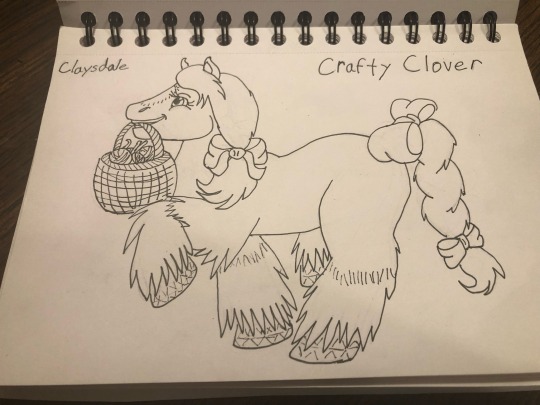
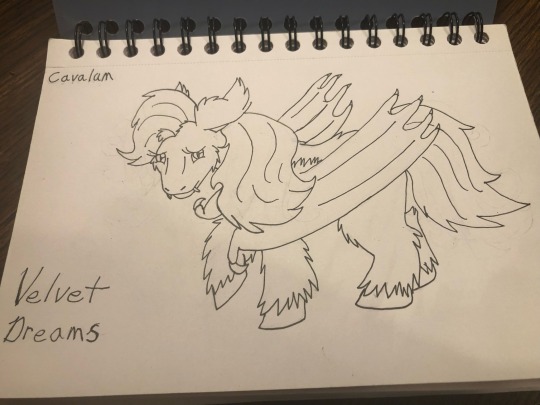
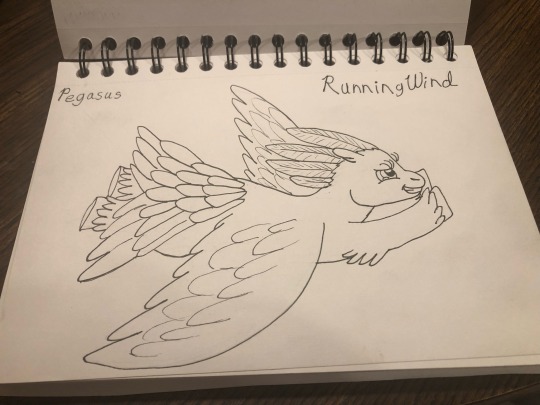
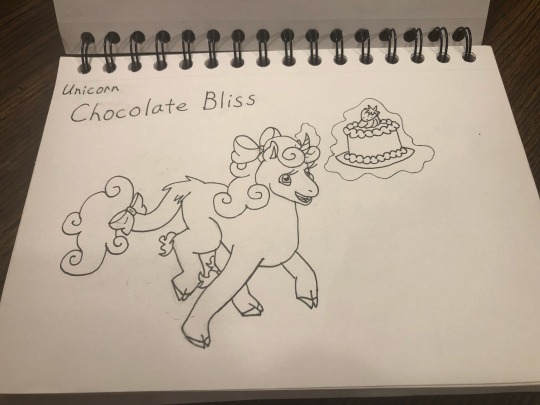
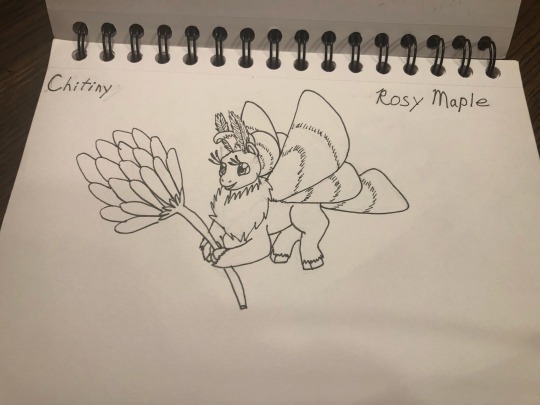
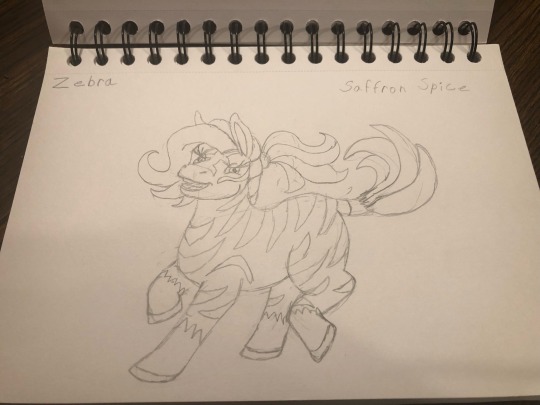
Now to explain the names. Well not the pony’s names but the species.
I always thought that calling the regular ones earth ponies was unimaginative and even a little disrespectful. So I changed the design to make them the biggest, gave them gem hooves, rock and earth powers, and Named them Claysdales.
Yeah same situation with Bat ponies. But the name was harder. Can’t call them thestrals cause I am pretty sure that is copyrighted. I was stumped until I put two random bits of information together. 1 Pegasus was originally the name of one individual winged horse and became a species name over time. 2 cavalum is the name of a bat winged horse in Portuguese mythology. If it worked once it works here. So now I named my batty ponies of the night Cavalum, and gave them sonar, night vision, the ability to control shadows and even travel through them, and dream walking.
Pegasi don’t change too much other then the mane and tail now being made of feathers. They of course walk on clouds and have wind and air magic and are very fast.
Unicorns I changed to be smaller and slimmer, almost deer like compared with the other pony species. And gave them the classic lion or ox tail seen in medieval art. Males will have a beard. Their powers include levitation, teleportation, and general magic which lets them mimic other creatures powers but at a lower strength level. Basically if it isn’t the first two they are a Jack of all trades and master of none.
The Chitiny…. Ok they are a mix of the flutter ponies in gen 1 and the changelings in gen 4 design wise, But still really different in the lore I am developing. The name comes from the words Chitin (what bug exoskeletons are made of) and Tiny, cause they are the smallest type of pony, standing at about a foot tall (fyi the claysdales range about five to six feet tall at the shoulder…. Yes I’m American). The antennas let them communicate with other Chitiny and people they have built a bond with telepathically. They can lift several times their weight (like ants and bees) they can make silk, honey, wax, royal jelly, and a sticky slime. Of and cling/crawl on walls. Yes they live in hives. Rosy Maple is from the Lepidop hive ruled by queen Luna and king Atlas.
Zebras I never understood why they weren’t used more in MLP. Anyway I wanted to give them a wild nature theme and am giving them powers to make plants grow faster and even move, and if you don’t think that is impressive let me just point out when the trees woke up in Narnia Prince Caspian. I will never get the image of tree roots dragging that one guy underground out of my head. Oh they can also understand animals.
Ok tagging people who I think will enjoy this. @artstaeus3600 @bianca-hooks123 @confusedshades @emacrow @hubedihubbe @kizzer55555 @pinkiemachine @tigertaurus22
Ooops quick edit. This isn’t all the pony species I thought up but was what I had time to draw. We still have the Kirin, the Kelpies, the alicorns and one I made up called the Najor. And about 11 other non-pony species that make up this world’s inhabitants. So there will be updates.
53 notes
·
View notes